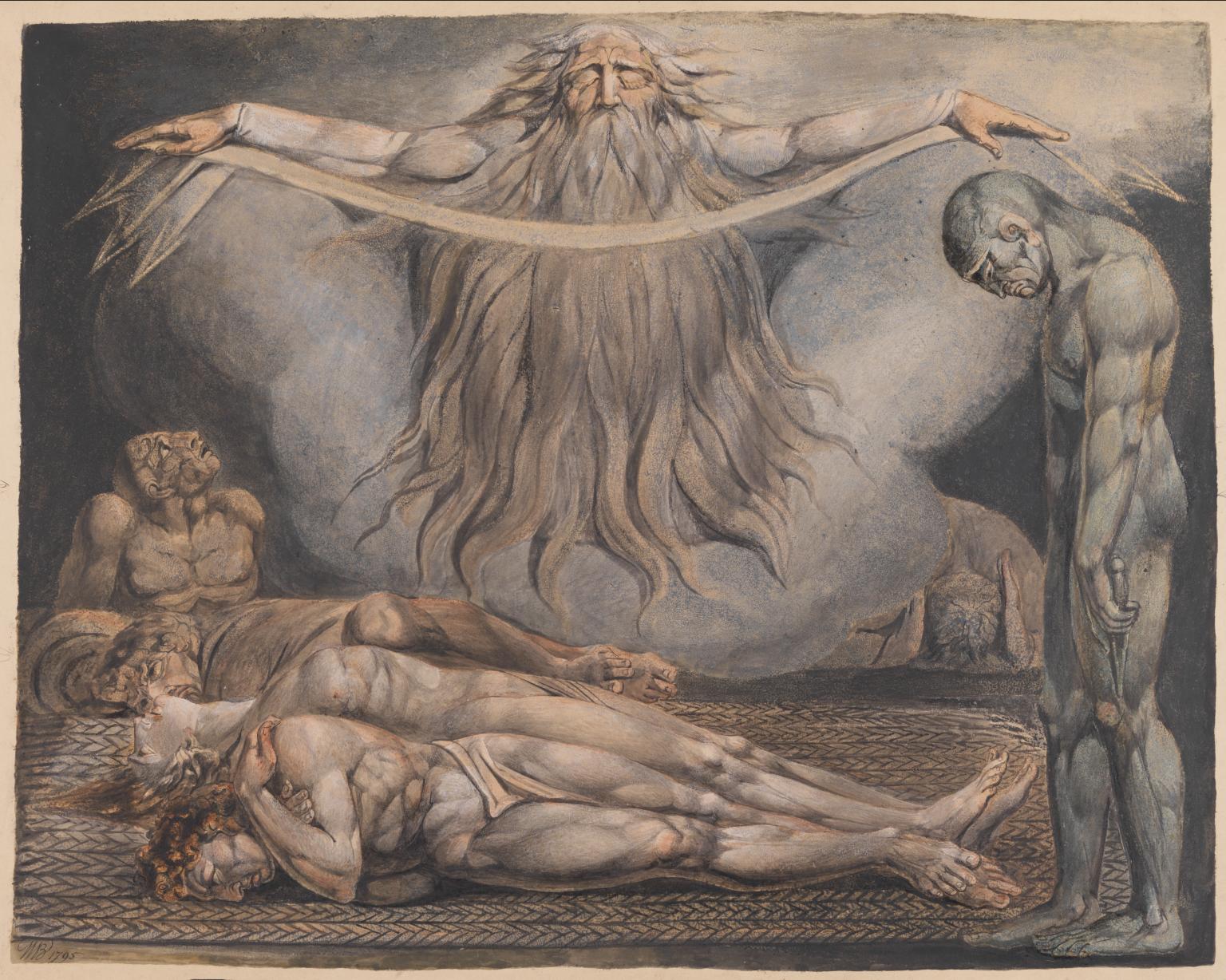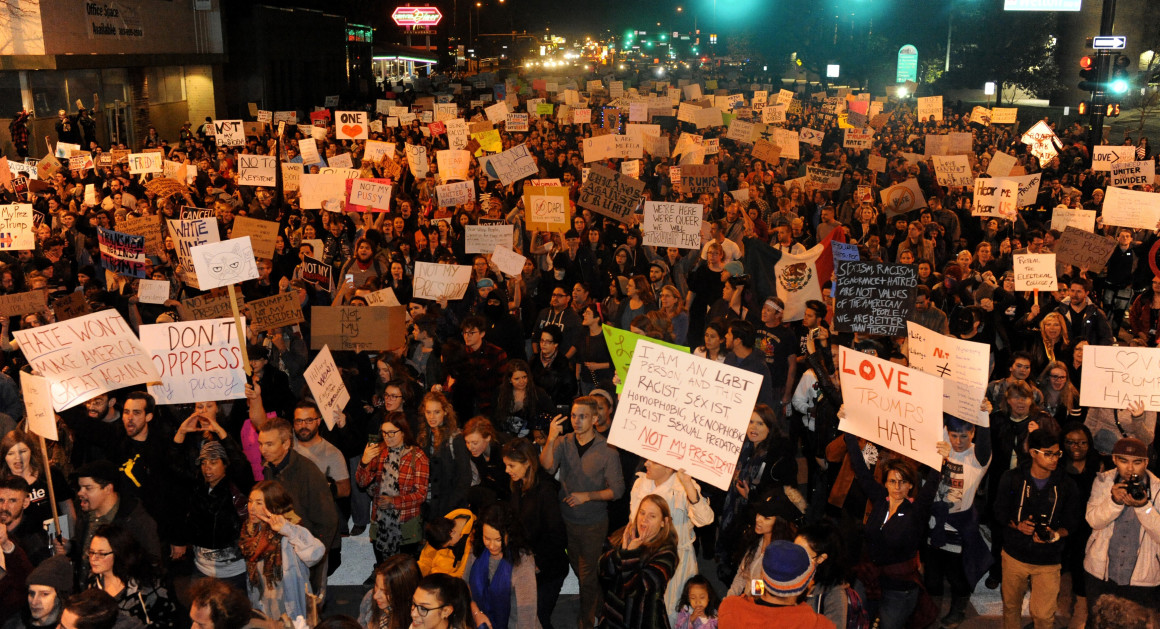
"Deep in the Unknown to find the new!" Baudelaire
Before boarding an airliner bound for Munich on September 29, 1938, Neville Chamberlain declared, “When I come back, I hope I may be able to say as Hotspur says in Henry IV: “Out of this nettle, danger, we pluck this flower, safety.” Just under a year later, Britain declared war on Germany. Chamberlain’s quoting of Shakespeare in the midst of a diplomatic crisis appears haplessly inept, its naivety fitting the image of him going to broker a gentleman’s agreement with an appallingly barbaric regime armed with only his trademark umbrella. The quote has entered the history books for all the wrong reasons. And yet it tells us a great deal about pre-war political discourse. Addressing that society, Chamberlain could assume a certain cultural fluency, and an ear for the literary tradition, in a way today’s speech writers cannot. Had his mission not eventually met with such failure, this reference from the Bard would have passed by unnoticed, and been saved from the ridicule to which it is exposed today.
"Poetic speech takes hold when language no longer serves as a mere tool or cog which can be slotted neatly into place."
One might ask whether Chamberlain was simply exemplifying the style of speech of his day, or if something more significant was going on. In the face of a phenomenon taking hold of the European mainland which had never been encountered before, and for which there was no historical precedent, Chamberlain gestures toward the poetic medium. He projected a favourable outcome by mining the native tradition. He tentatively nods to poetic discourse, which is a suggestive, exploratory, and searching means of communication, as he tries to envisage his way through an unnavigable thicket. Perhaps we can feel some compassion for Chamberlain, that absurd old English gent dwarfed by the ominous Goliath looming before him. For people often make allusions to poetic turns of phrase when faced with unfathomable realities. Poetry is the language of love, of fear, and of death—it gives voice both to epiphanies and to catastrophes. When prosaic speech cannot do justice to reality, the more malleable bounds of the poetic form take over.
For this reason, poetry flowers in civilizational death and rebirth. This is obvious enough in the emergence of romanticism, when feudalism gave way to industrialisation, or in the First World War poetry about the cataclysmic destruction of 19th Century ideals giving birth to the modern era. It applies to Shakespeare himself, of course, standing on the interstices of Late Medieval and Early Modern England, in the midst of foundering and novel religious and cultural identities. Shakespeare can in this sense rightly be called a bard, after the bearers of that office among the ancient Britons. The bards codified and explicated their people’s circumstances and contexts in mnemonic iterations, providing orientation for understanding contemporary events, and gesturing thereby to the emerging future. The bardic office was therefore prophetic. Not in the sense of crystal ball gazing, but by providing orientation. This is not to say there was not a mystical and mythical dimension to the role. A relationship between poetry and some “beyond” endures to this day in certain approaches to poetic inspiration. As we read in A Midsummer Night’s Dream,
The poet's eye, in fine frenzy rolling,
Doth glance from heaven to Earth, from Earth to heaven.
And as imagination bodies forth
The forms of things unknown, the poet's pen
Turns them to shapes and gives to airy nothing
A local habitation and a name.
Faced with that which is not yet seen (“things unknown”), the poet’s imagination rises on what Keats called “the viewless wings of poesy,” so his pen can explicate things which would otherwise be mere “airy nothing.” In doing so, intangible things are “named”; discovered and given semantic currency. This process always interprets things through a particular cultural context (a “local habitation”): “Such shaping fantasies, that apprehend/ More than cool reason ever comprehends.”
In the post-war era, political and social discourse in the public square opted for “cool reason” over against “shaping fantasies.” A functional, bureaucratic, and managerial mode of speech signalled the professionalism of the political class. Rhetorical devices become less and less common in this time, as indeed does that full-blown recourse to the poet’s pen. This pen seemed to have retired to living privately, ignominiously, like the disgraced Chamberlain. The profundity of the poetic medium is certainly appreciated in this time, particularly in presidential inauguration speeches, for example. But here poetry is often reduced to fulfilling a function. If you look closely at, say, Miller Williams’s poem written for Bill Clinton’s 1997 inauguration, it is not a searching nor exploratory attempt to give voice to something new, but explicitly states quite the opposite:
...We mean to be the people we meant to be,
to keep on going where we meant to go.
Here, poetry is employed to exemplify pre-existing parameters, rather than give birth to new means of orientation. The reasons behind the reduction of poetry to mere function in the public square are many and varied. In the first place, function and efficacy has a certain universal or “transcultural” provenance that make it appealing in an increasingly globalised context. There is no room here for “local habitations,” for native traditions and shared histories like those once preserved by the bards. It is also important to note poetry’s time-hallowed link with the transcendent or supernatural, which loses traction in increasingly materialist and secular societies. Finally, genuine ideological conflict, at least since 1989, gave way to an apparently enduring settlement, so that there was not the fertile ground of shifting epochs and worldviews, which often prompts the emergence of the poetic voice. When prosaic terms of reference no longer hold sway, people turn to the visionary and exploratory articulations of the poet to find their way through.
The visions articulated by poetic speech cannot be seen through a narrowly delimited Overton’s Window. Outside of the public square, even everyday communication has been limited to function, in contrast to allusion and exploration. The eclipse of heavy industry by the service sector involved replacement of functioning objects with words and concrete processes with semantic formulations: “customer satisfaction,” “top-quality,” “economy-size,” and “longer-lasting.” The result is assembly-line speech, identikit locutions, the flat-pack sentence. Merely functional discourse is pre-packaged speech, tightly wrapped in clingfilm, clinically neutralised and artificially compounded. Functional discourse, by definition, cannot break the bounds of the presuppositions it serves, for then it has ceased to function. An organic example of this can be heard by people exchanging pleasantries and making small talk. The literal sense of commenting on the weather, or saying “nice to meet you,” is unrelated to the real significance of these exchanges, which hides behind the ill-fitting words it wears. For this speech is a way of displaying shared presuppositions and convictions; it functions to put ourselves and others at ease by quickly carving out a shared semantic space. It seeks to diffuse the unknown, the radical, the different: it bespeaks a terror of our being mutually dumbstruck by an awkward sense of our unassailable estrangement from each other.
The language of the contemporary workplace has entirely surrendered to dominance of the procedural, to the bureaucratic (literally, the “ruler of the office”). It seems designed specifically to enable those initiated in its logic to display their own dissolution to the dictatorship of the bureau, their unquestioned willingness to smooth out anything particular, any “local habitation,” so no compensating reorientation will be required by the organisation they serve. For what is actually signified by managerial speak like “touching base,” “going forward,” and being “onboard”? Submission to an inexorable telos. In the UK, smooth talking managerial speech had its own anti-bard in Tony Blair, whose mantle of inspiration has now passed to the neophyte Emmanuel Macron. Blair, by stripping out the ideological basis of his political party, removed an alternative worldview from British politics. The result was a managerialization of the political, politics as a play of efficacy. Administrators without portfolio swarmed the corridors of power, “czars” from other sectors who exhibited transferable skills. “Cool reason” defined the assembly line, pre-packaged speech provided the empty lingua franca of a soullessly globalised world.
Speech reduced to function is the linguistic currency of ideological settlement, of an Overton’s Window whose frame has receded out of sight because everyone is standing too close to the glass to acknowledge its existence. It is the language of unquestioned presuppositions. Its context is like that of Blair’s statement, “Mine is the first generation able to contemplate the possibility that we may live our entire lives without going to war or sending our children to war.” Leaving aside the irony of this statement, and not asking how many mothers of military personnel must seethe at the sight of those words, such a supposed pax means that the exploratory work of the poet is no longer needed. Where people do not battle against things unknown, there is not that impulse which drove Wilfred Owen to give voice to “the stuttering rifles' rapid rattle” on the Western Front.

To converse functionally is to converse in monological terms, and therefore not to converse at all, because neither party can be brought to a fresh place of understanding. It already has its remit carved out for it, its purpose defined. This speech is contrived, it cannot bear spontaneity or authenticity. Functional speech is eminently transferable. It must be capable of being transplanted, easily, into entirely different contexts where it can quickly resume its connective purpose, the stated end for which it was designed. It is all form and no content. The brand new, boxed-up, laptop will do its work regardless of whether it is purchased by a writer, architect, or graphic designer. It seems in and of itself morally neutral, always separable from the unsavoury activities to which it might be turned. Some flat-pack instruction booklets have now dispensed with language altogether. One cannot deny the fact that they work well and function efficiently. Efficiency is won at the price of millenia of linguistic sophistication being undone. Culture dies with language. Local habitations begin all to look the same when deprived of words. Context is nothing where function is everything.
In recent years, however, a phenomenon has arisen which suggests exploratory language, and therefore, the realm of the poetic, might be beginning to emerge once again. The preliminary stage is for language no longer to function as it is expected to. Commentators often lazily point to how the internet has enabled harsh and abrasive speech to re-enter public life. Populist speeches frequently exemplify this same turn. As Elena Block and Ralph Negrine put it, “Populist leaders use abrasive, belligerent, direct, and simple language to connect with disenchanted publics.” But it is remarkable how rarely mainstream commentators take issue with the arguments at stake in each case of populism. The most frequent condemnation is language of dysfunction, calling Trump the “mayor of Crazytown,” or sometimes, a malfunction of the workings of the system. Yet beneath the condemnations of dysfunction and malfunction is an untouched conviction: that the pre-existing status quo must have been unbroken and efficient, that the problems are not inherent or intrinsic to the system itself. When something is malfunctioning, one does not adjust to the change, one does not just keep going and try to make it work: you replace the rogue element. A malfunctioning car does not lead someone to question the rectitude of automobile transport.
But poetry flowers in civilizational death and rebirth. Maybe the abrasiveness and bad taste on display in the public square actually signals a grave outlook for the allegedly unbroken status quo. The first stage of an unveiling is to acknowledge the fragility of the veil. An exotic dancer begins her act by letting the outer layers of her costume quiver and flutter. In doing so, the reality of what lies beneath suggestively emerges in the imagination of her audience. Perhaps the fragility of the dominant discourse is being exposed; people are standing back from gazing at the permitted vista and seeing their reflections on the glass before their eyes. Poetic speech will describe the contours of the window-frame itself, envisaging something new from the staggered staccato and shattered sentences of the rabble-rousing speech. Much interesting and inventive writing today, while a far cry indeed from populist rhetoric, wouldn’t make much sense without the spectre of populism behind it. Among all the discourse available to us today, the genuinely open and exploratory pieces will be those of a better written quality, those that take a more inventive form, those in which the language itself carries both writer and reader somewhere new. For language is pushed to the limits and takes on new forms when the writer is challenging unquestioned presuppositions. Similarly, an NPC-style prose will rest on buzzwords and assumed convictions, clinically neutralised and artificially compounded constructions, serving only to signal that which is being assumed, not inquire into alternative orientations.
An example of exploratory writing is Michel Houellebecq’s novel, Submission, which occupies a cusp-point between civilizational death and rebirth. Indeed, Houellebecq, in a remarkably self-defeating move, opens the novel with its protagonist, François, discussing literature itself as something dying. He calls it “the major art form of a Western civilisation now ending before our eyes” (original italics). François’s approach to literature is decidedly late-19th Century, for he is a scholar of the author Joris-Karl Huysmans. François argues that “only literature can put you in touch with another human spirit, as a whole, with all its weaknesses and grandeurs, its limitations, its pettinesses, its obsessions, its beliefs; with whatever it finds moving, interesting, exciting or repugnant.” In other words, returning to Shakespeare, “Such shaping fantasies, that apprehend/More than cool reason ever comprehends.” This is very like an account of poetry given by a contemporary of Huysmans, the German philosopher Wilhelm Dilthey, who held that poetry is uniquely able to allow someone to enter into the subjectivity of its writer, which, like Houellebecq, he calls a “whole” or Gestalt, the “shape” of a person’s imaginings, or “fantasies.”
The death of Western civilisation is particularly perceptible in Submission when François wanders into the Chapel of Our Lady at the ancient shrine of Rocamadour in the Dordogne. A poetry reading is taking place, of the old French nationalist and Catholic poet, Charles Pierre Péguy, another contemporary of Huysmans.
Mother, behold your sons who fought so long
Weigh them not as one weighs a spirit,
But judge them as you would judge an outcast
Who steals his way home along forgotten paths.
François enters into a “strange state,” in which “it seemed the Virgin was rising from her pedestal and growing in the air” and all Jesus “had to do was raise his right hand and the pagans and idolaters would be destroyed, and the keys to the world restored to him.” But then he concludes, “Or maybe I was just hungry.” This moment fits the overarching mood of Houellebecq’s dismissal of the Western status quo; a confused but largely uncaring tiredness, a laissez faire nonchalance born of decay. Beforehand, François is so exhilarated by Péguy’s invocation of “a handful of earth/ So lost to them, and that they loved so much,” that he says, “I felt ready to give up everything,” “not really for my country, but in general” (original italics). This is passion which is generalised, universalised, rendered transferable and lacking in content, passion artificially arrogated to something considered vaguely worthwhile but not subject to critique. It therefore promptly dissipates into hunger. The chapter closes with him leaving the chapel after he felt “shrivelled and puny,” so, “reduced to my damaged, perishable body…I sadly descended the stairs that led to the car park.”
Submission was published amidst great controversy. The same year, Robert Menasse’s Enraged Citizens, European Peace and Democratic Deficits was awarded the European Book Prize. It is an essay on the challenges facing the EU, which argues for the end of political nation states in favour of an emboldened “postnational democracy.” Shakespeare’s “local habitations” and Péguy’s “handful of earth…they loved so much” are therefore assailed, page after page. Menasse calls national interests “beastliness,” considers those who speak of cultural identities “zombies from the 19th century,” and dismisses the “interests of the voters in the nation-states” as “demagogic.” A comment about “the irrationality of a so-called national identity” is particularly telling. The word “rational” is one of Menasse’s favourites. Without a hint of irony, he speaks of EU leaders as those called to act “like representatives of supra-national reason” and of those who “share an enlightened mentality that thinks in transnational categories.” “National interests” are said to be “contrary to any objective logic.” When nations are dissolved into the EU, he claims, “maybe the historical ingenuity of reason will once again prevail.”
Menasse thus sets his sights firmly on those “shaping fantasies” of European identities, those of supposed “19th Century zombies” like Huysmans, Péguy, or Dilthey. But while their “shaping fantasies…apprehend/ More than cool reason ever comprehends,” Menasse exalts “cool reason” above all else, seeming actively to want to diffuse language, to put it back to work, atavistically, in service of its prior function, piling more dead soil upon the earth beneath which the sleeping bards lie in their graves. This endeavour involves his application of “cool reason” to language often found in writing about the EU. He condemns phrases like “bureaucratic palaces” for the monochrome edifices of Brussels, or the alleged “dictatorship of civil servants.” He criticizes the phrase “bureaucratic juggernaut,” and the repeated use of the term “mania” to describe the EU’s concern for regulation. Above all, he condemns that fusing of the word “bureaucrat” with the EU official, into the ubiquitous neologism, “Eurocrat.”
But what Menasse does not realise is that such speech—non-literal, hyperbolic, suggestive, metaphorical—is speech which refuses to be reduced to function for the dominant presuppositions he defends. Menasse wants to flatten out any kind of difference into what he calls different “mentalities,” that is, in his own words, “national identities [that] have turned into quirks.” But can the differences between, say, Dante, Goethe, and Shakespeare be relegated to the realm of the “quirky,” a service-sector word for reducing uniqueness to the level of function? He condemns each nation’s “contradictory feelings and fantasies” as unable to withstand “rigorous scrutiny.” He is quite correct, of course, for these “feelings and fantasies” mirror what Houellebecq calls the human spirit’s “weaknesses and grandeurs, its limitations, its pettinesses, its obsessions, its beliefs.” The particular contours of these things, which cannot be universalized by “cool reason,” are captured only by poetic communication, so it comes as no surprise that Menasse takes issue with the style in which his enemies speak.
Both Houllebecq and Menasse—one enfant terrible and the other lauded by a pan-continental (sorry, “supra-national”) critical acclaim—occupy a space between a civilizational death and rebirth. This is shown by the tensions of style and genre at play in each. In Submission, prosaic speech stands aside so Péguy’s poetry can break through onto the page, albeit abortively, and not managing to lead François to “steal his way home along forgotten paths.” For Menasse, the style and structure of Eurosceptic rhetoric must be assailed. Here we have two different reactions to an architectonic shift in the terms of speech, a change in presuppositions which Menasse wishes were unchangeable. Menasse’s “zombies” are actually “local habitations” and “names”; particular peoples, in particular contexts, speaking in particular languages, not in the functionable, but woefully stilted, cadence of the transnational polyglot.
What is happening in both books is the first showings of a rebirth of non-transferable speech, speech which cannot be fitted into any context because it no longer merely serves unseen presuppositions. As Michael Schmidt has pointed out, one may be able to paraphrase the sense of a poem, but the poetic utterance itself can never be paraphrased; it can never be transferred into someone else’s terms. It is the stubborn differential, the remainder concept, that will not be flattened out by any homogenous impulse. In his descriptions of the way poetry expresses a person’s Gestalt, Dilthey argued that this singularity can only be expressed in ways innately personal and culturally situated: it can never be wrenched from its particular, concrete context.
Poetic speech takes hold when language no longer serves as a mere tool or cog which can be slotted neatly into place. Poetic speech is speech that has taken back control, and which does not express pre-determined parameters as opposed to hacking-out new ones, boldly. It is speech which discloses, rather than veils. Poetic speech shows that the way people articulate things doesn’t just reflect how they see things; it actually enables them to see. If we are to witness an epochal rebirth from the ashes so despairingly described by Houellebecq, the bards will need to be reborn. Their discourse will use language in the service of articulating new orientations. Language can then take flight into the airy nothing, and name envisioned possibilities not prescribed by those who would curate and contrive our words.

